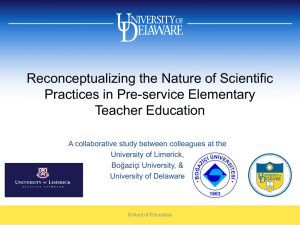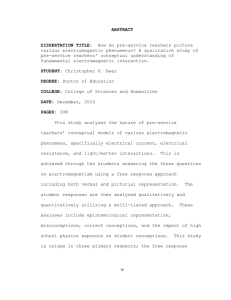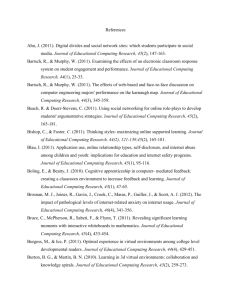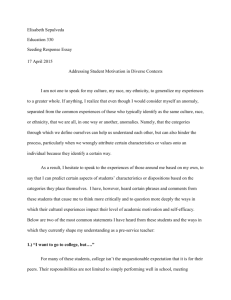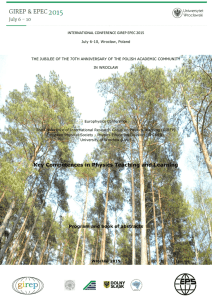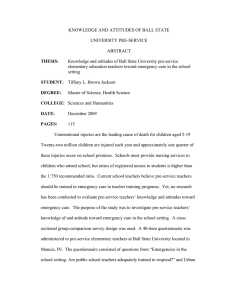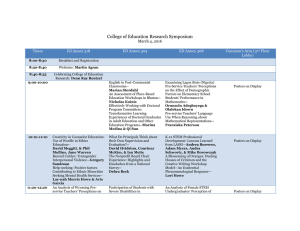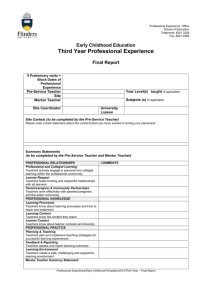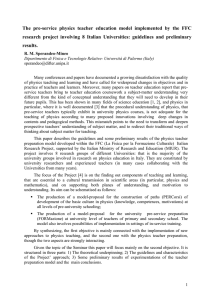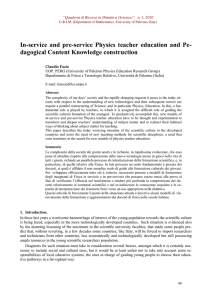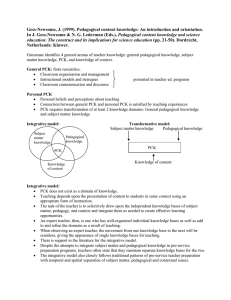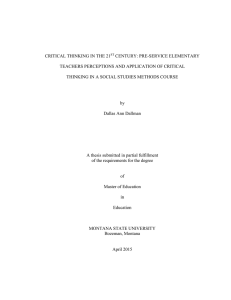ABSTRACT DISSERTATION: learn about the moon, construct knowledge, and teach elementary students... world via the Internet.
advertisement
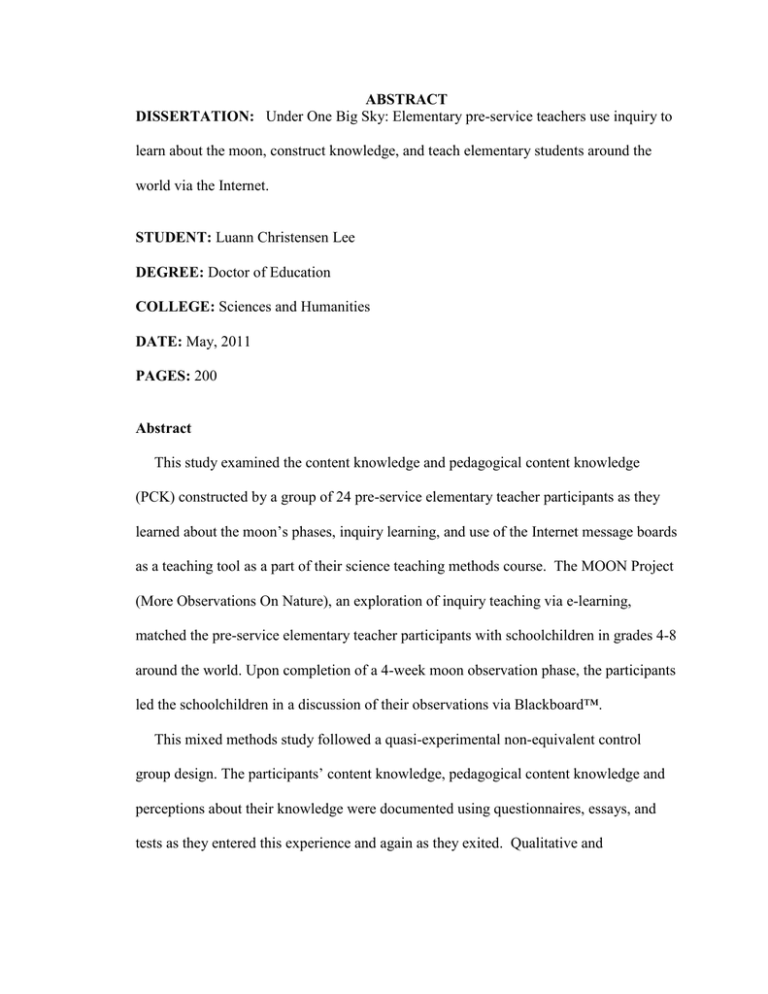
ABSTRACT DISSERTATION: Under One Big Sky: Elementary pre-service teachers use inquiry to learn about the moon, construct knowledge, and teach elementary students around the world via the Internet. STUDENT: Luann Christensen Lee DEGREE: Doctor of Education COLLEGE: Sciences and Humanities DATE: May, 2011 PAGES: 200 Abstract This study examined the content knowledge and pedagogical content knowledge (PCK) constructed by a group of 24 pre-service elementary teacher participants as they learned about the moon’s phases, inquiry learning, and use of the Internet message boards as a teaching tool as a part of their science teaching methods course. The MOON Project (More Observations On Nature), an exploration of inquiry teaching via e-learning, matched the pre-service elementary teacher participants with schoolchildren in grades 4-8 around the world. Upon completion of a 4-week moon observation phase, the participants led the schoolchildren in a discussion of their observations via Blackboard™. This mixed methods study followed a quasi-experimental non-equivalent control group design. The participants’ content knowledge, pedagogical content knowledge and perceptions about their knowledge were documented using questionnaires, essays, and tests as they entered this experience and again as they exited. Qualitative and quantitative methods and analysis established that the increase in pre-service teachers’ content and pedagogical content knowledge (PCK) as well as their perceptions of the knowledge gained was statistically significant at the conclusion of the project. However, they took away understandings of why the moon changes shape that were basic at best and fraught with a statistically significant increase in misconceptions. None of the instruments supported the pre-service teachers’ perceptions of increased PCK. The pre-service teachers had mixed perceptions about teaching over the Internet, mostly due to the degree to which their elementary student groups responded with focus to questions and discussions or, in some cases, participated at all. The findings and recommendations speak to teacher educators about the methodology used in teacher education programs.
